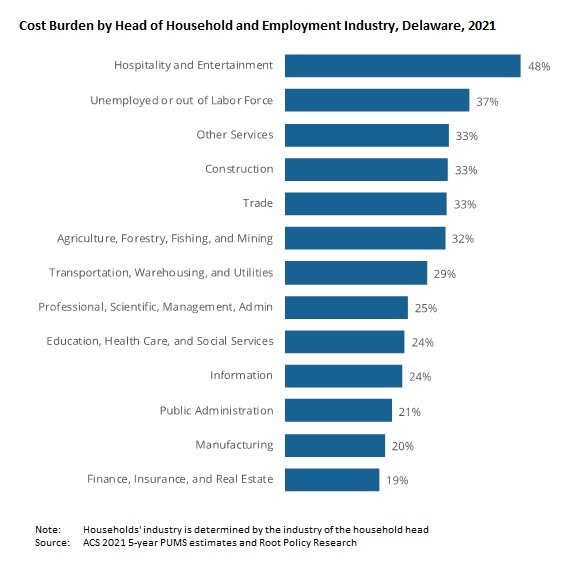
4 minute read
Delaware Voices & Data
The 2025-2030 Housing Needs Assessment Report Underscores a Need for Action
BY EUGENE YOUNG, JR.
DELAWARE IS FACING a housing crisis. I’m sure you have noticed it. It affects us all in one way or another. I’m confident you’ve heard from friends, families, and colleagues about the various housing challenges in Delaware.
Anecdotally, the Delaware State Housing Authority (DSHA) hears more and more about the experiences of our residents. Some can’t find an affordable unit, others are being priced out of neighborhoods for homeownership, and many struggle to maintain their current housing. Our team has also recently become privy to the massive migration of people to Delaware from other states.
As a state, we have already taken historic steps to address these issues with the help of over $120 million in one-time supplemental funding provided by fiscal recovery funds from the American Rescue Plan Act (ARPA).
To deploy these funds and better align future programs most efficiently, DSHA is nearing completion of a Housing Needs Assessment. This report is produced by our agency every five years or so to assess current housing conditions, such as cost, affordability, inventory, and more.
This year, DSHA partnered with Root Policy Research to analyze demographic, housing production, and housing cost data; interview developers, service providers, advocates, legislators, and housing and community development planners; and survey Delaware residents.
Just as in previous years, we aim for this Housing Needs Assessment report to be used by DSHA, local jurisdictions, and housing partners to:
Inform policymaking to ensure that federal and state policies result in meaningful solutions;
Examine the adequacy of current and planned housing programs;
Advocate for increased funding to respond to housing challenges; and
Understand inequities in how different types of Delawareans experience the housing market.
While the report will be published any day now, DSHA has previewed the executive summary and reporting findings on our website. Many of the results confirmed the anecdotes DSHA, and most likely yourself, have heard over the past few years. Yet, with the data behind these experiences, a new housing landscape appears.
For instance, almost half (48%) of all workers in the hospitality and entertainment industry are cost-burdened, meaning that they spend more than 30% of their income on housing. This figure is higher than the percentage of people who are unemployed or out of the labor force who experience a cost burden.
One-third of workers in the construction industry are also cost-burdened, exacerbating labor shortages and increasing development costs in the housing development industry.

In 2022, only 20% of homes for sale were affordable to households, making less than 120% of the Area Median Income (approximately $80,000 annually).
Suppose we want our workforce to reflect where we want to be as a state—diverse, stable, and sustainable. In that case, cross-sector collaboration is crucial to making meaningful progress toward addressing the shortage of affordable units. This includes communication and cooperation among state and municipal governments and the private and nonprofit sectors.
Additionally, the value of diversity includes the types of housing we develop in our state. Eighty-five percent of residential building permits statewide are for single-family detached homes, which do not meet the affordability needs uncovered in the Housing Needs Assessment.

Even with additional funding and resources provided by ARPA, efforts to address the state’s housing needs will be constrained unless state and local regulatory policies explicitly encourage the development of diverse housing types. Planning and zoning changes are needed to ensure all Delawareans can access safe housing, regardless of income, age, location, or household size.
DSHA is proud of its work on this year’s assessment, and we’re eager to continue financing new housing development projects. We’re confident that Delaware is approaching a monumental moment in our state’s housing history. DSHA looks forward to working with stakeholders and policymakers at every government level to ensure everyone has access to safe and affordable housing. Using these tools and resources and your partnership will make Delaware the perfect place to live, work, and play for years to come.
Eugene Young, Jr. is the director of Delaware State Housing Authority.










